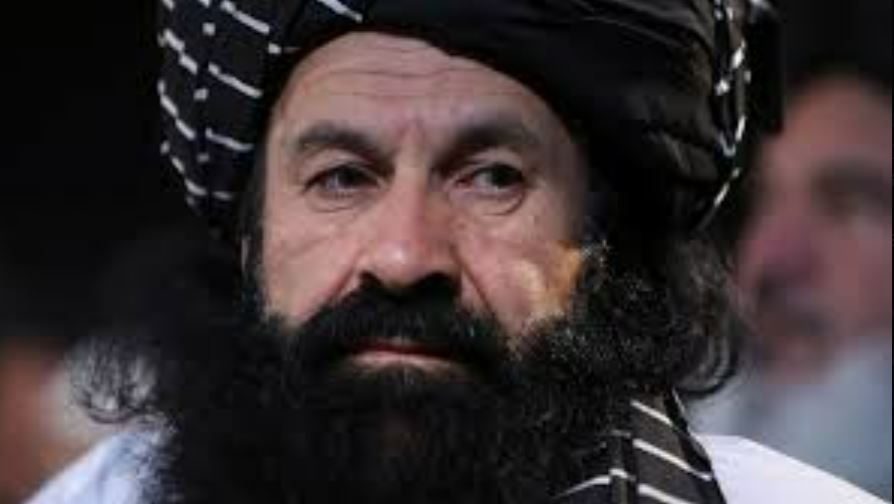In a significant blow to Afghanistan’s Taliban regime, Khalil Ur-Rahman Haqqani, the minister for refugees and a senior leader within the notorious Haqqani Network, was killed in a suicide bombing in Kabul on December 11, 2024. This assassination marks the highest-profile casualty within the Taliban leadership since their return to power in 2021 and has sparked immediate speculation and concern about the stability and internal dynamics of the regime. Here’s why this event matters on multiple levels.
Afghan Political Commentator and analyst, Sangar Paykhar said in his social media post on X ( formerly Twitter) says, The assassination of Khalilurrahman Haqqani is a major turning point for the three year rule of IEA. This is going to have an earth shaking effect on security, politics and the future in Afghanistan.”
The assassination of Khalilurrahman Haqqani is a major turning point for the three year rule of IEA. This is going to have an earth shaking effect on security, politics and the future in Afghanistan. pic.twitter.com/bnWEikEMxG
— Sangar Paykhar – سنګر پیکار (@paykhar) December 11, 2024
Who Was Khalil Ur-Rahman Haqqani?
Khalil Ur-Rahman Haqqani was not just any minister but a pivotal figure in the Haqqani Network, known for its brutal tactics and close ties with both the Taliban and al-Qaeda. Born into the influential Haqqani family, Khalil was the uncle of Sirajuddin Haqqani, currently the Taliban’s interior minister and one of the most powerful figures within the group. Khalil’s roles included being responsible for the security of Kabul immediately after the Taliban took control in 2021, and later, he was tasked with overseeing refugees, a role critical in dealing with internal displacement and the influx of returning Afghans.
Haqqani’s death represents a significant loss for the Haqqani Network, often described as the Taliban’s “most radical and violent branch.” His role as a fundraiser and operational commander had been crucial to the network’s activities, both during the insurgency and in their current governance roles. His demise could potentially disrupt the network’s operations, especially in terms of financial management and strategic decision-making. Furthermore, his close relationship with Sirajuddin Haqqani means this loss might personally impact the interior minister, possibly influencing his political maneuvers and alliances within the Taliban.
The Taliban’s official response, with leaders like Abdul Ghani Baradar attending Haqqani’s funeral, suggests an attempt to show unity and continuity. However, the assassination could exacerbate existing tensions. Reports have noted disagreements between different factions within the Taliban, particularly between the Haqqani Network and other groups like the Kandhari faction, over policy decisions and power distribution.
Security Implications:
The attack, claimed by the Islamic State-Khorasan Province (IS-KP), underscores the ongoing threat from rival extremist groups. Since taking power, the Taliban has faced numerous attacks from IS-KP, who have targeted both Taliban officials and civilians, particularly in Kabul. The assassination of such a high-profile figure in the heart of government operations indicates a significant security breach, raising questions about the Taliban’s control and the effectiveness of their security measures.
This incident might also lead to a crackdown on IS-KP, potentially escalating the conflict between these two groups. However, it could also force the Taliban to rethink their security strategies, possibly leading to a more authoritarian approach to quell dissent or perceived threats.
Afghan Society and International Relations:
Khalil Haqqani’s role in refugee affairs was crucial, especially given Afghanistan’s ongoing humanitarian crisis. His death might lead to a vacuum in leadership that could disrupt aid distribution and refugee management at a time when millions are in need. Additionally, international actors, already wary of the Taliban’s governance due to human rights issues and lack of inclusivity, might see this as another sign of instability, potentially affecting aid agreements and diplomatic engagements.
The international community’s response has been varied, with condemnations from neighboring countries like Pakistan, highlighting the regional implications of such instability. The assassination could lead to a reevaluation of how countries engage with the Taliban, particularly in terms of recognizing or supporting their government.
The Haqqani Network’s connections to Pakistan’s intelligence services and its historical ties to al-Qaeda have made it a key player in regional geopolitics. Khalil Ur-Rahman Haqqani’s death could disrupt these dynamics, leading to shifts in how neighboring countries, particularly Pakistan, engage with the Taliban.

